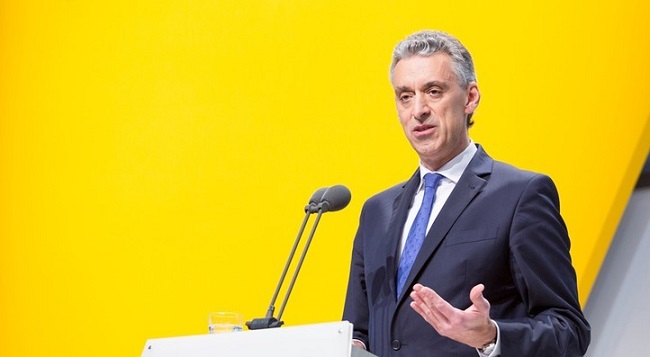The world’s leading logistics company, Deutsche Post DHL Group, is increasing the pace of its planned decarbonisation of the company by investing a total of €7 billion over the next 10 years in measures to reduce its CO2 emissions.

The funds will flow in particular into alternative aviation fuels, the expansion of the zero-emission e-vehicle fleet and climate-neutral buildings.
Along the way towards its zero emissions target by 2050, which has already been in force for four years, the company is committing to new, ambitious interim targets. For example, Deutsche Post DHL Group commits as part of the acclaimed Science Based Target initiative (SBTi) to reduce its greenhouse gas emissions by 2030 in line with the Paris Climate Agreement.
The climate targets are part of Deutsche Post DHL Group’s new sustainability roadmap, in which the company sets out its ESG goals for the next years. In addition to its commitment to the environment, the Group also defines clear targets and measures in the areas of social responsibility and governance.
The Board of Management and Supervisory Board of Deutsche Post DHL Group will propose to shareholders at the next Annual General Meeting that the remuneration system for the Board of Management will be aligned even more closely with sustainable business development.
In the future, the achievement of ESG targets will be taken into account when calculating the remuneration of the Board of Management – a clear signal that the commitment to sustainable business is a top priority at Deutsche Post DHL Group.
“As the world’s largest logistics company, it is our responsibility to lead the way and guide the logistics industry into a sustainable future. We are turning our yellow Group into a green company and making an important contribution to our planet and society,” says Frank Appel, CEO of Deutsche Post DHL Group. “I am convinced that by focusing even more on our ESG goals, we will remain the first choice for customers, employees and investors – and thus lay the foundation for long-term economic success.”
Since 2008, the Group has had ambitious sustainability targets, for example with regard to CO2 efficiency. In 2017, the Group reportedly became the first logistics company in the world to set a target of reducing its greenhouse gas emissions to net zero by 2050. To this end, the company offers numerous innovative solutions to make supply chains more sustainable and help its customers achieve their environmental goals. With “Strategy 2025” introduced in 2019, sustainability has become a fundamental component of the corporate strategy, it was gathered.
Appel said: “Covid-19 has once again reinforced the major megatrends of our time: globalisation, digitalisation, e-commerce and sustainability – the four drivers of our ‘Strategy 2025’. Of these topics, sustainability is the most pressing challenge. With our sustainability roadmap, we are stepping up our efforts and explicitly promoting the Sustainable Development Goals of the United Nations.”
